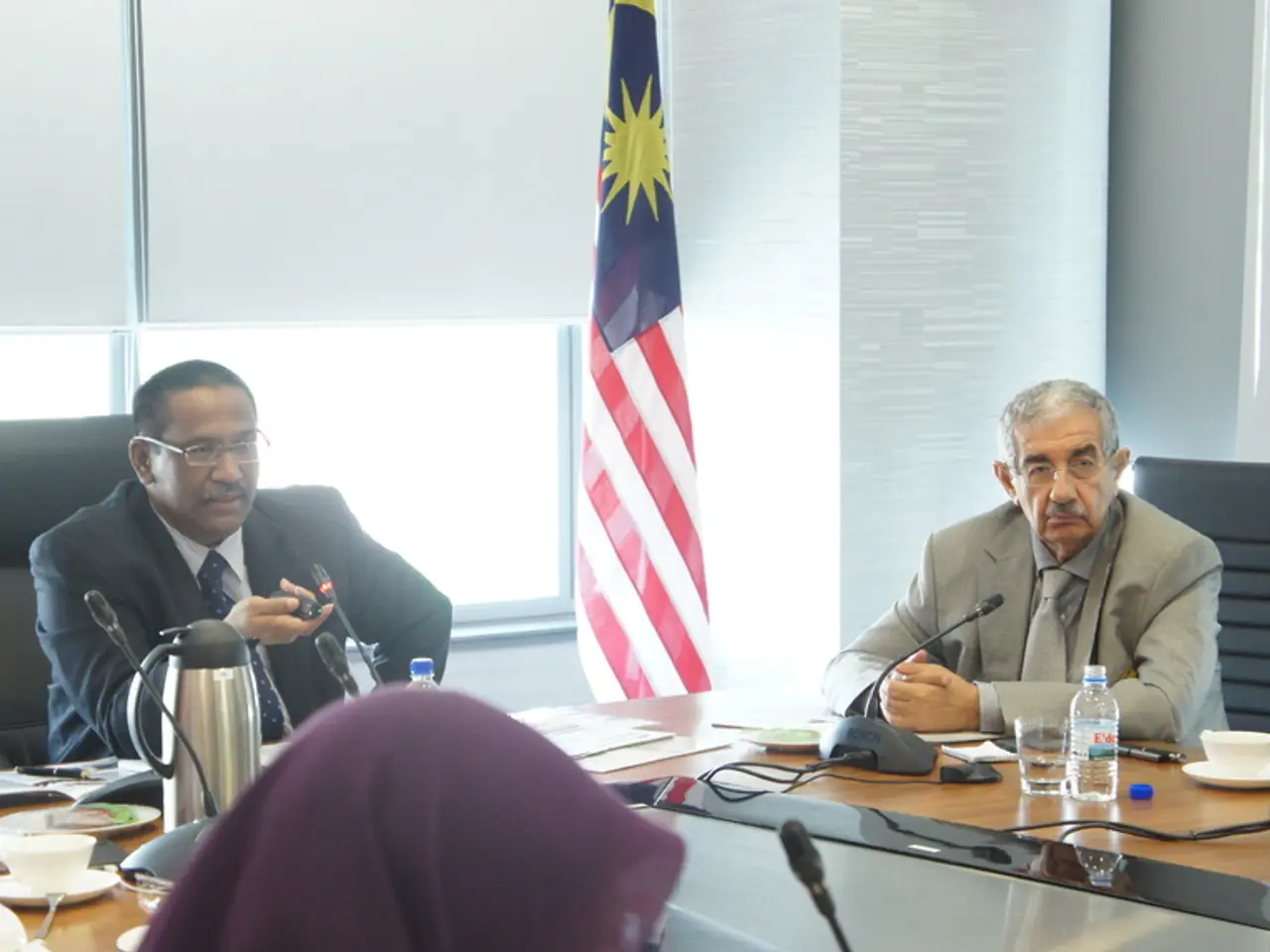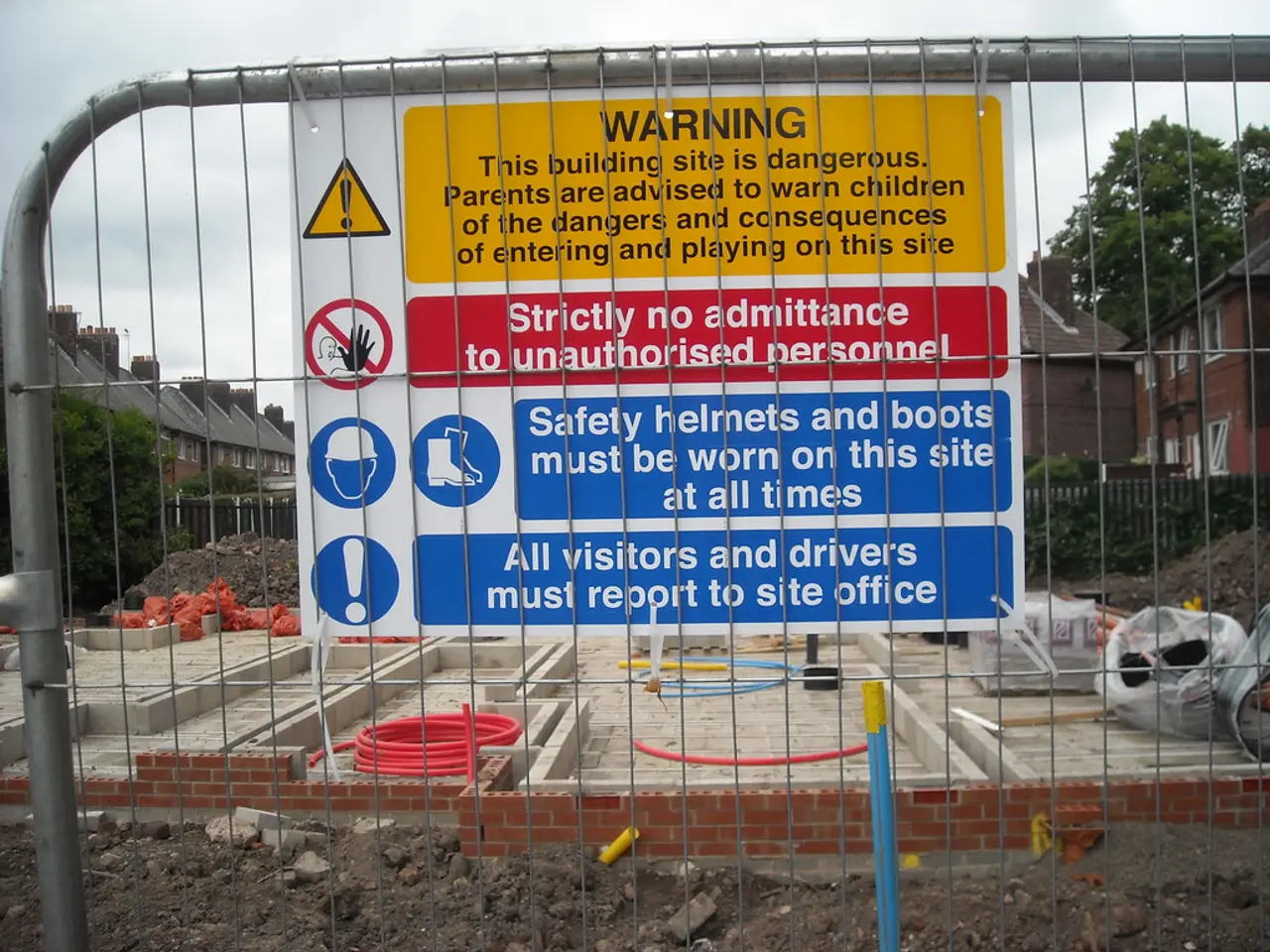Unveiling the "muddled plan": Consequences for Polish work visas for Belarusians
Getting a Polish Visa: The Struggles and Changes for Belarusians
In a chat with Visaflow.live editor and visa specialist Anastasia Lysakovskaya, she reveals that the rules for Polish work visas haven't fundamentally changed, but the scrutiny has intensified. Employers must now report if a new hire doesn't show up or leaves earlier than anticipated.
However, this does not affect family situations where the husband applies for residency with a work visa. The wife can apply for family reunification and work once she receives her residence card, as long as she does not need a work visa herself.
A work visa permits a foreigner to reside in Poland for more than 90 days, typically issued for 180 to 365 days. To acquire it, an invitation from a Polish employer, certified by the local labor office (Urzę̨dzie Pracy), is required.
Lodging a Date
The main issue for Belarusians revolves around booking an appointment at the visa center. Even with an invitation, snagging a date on the website is challenging, and relying on intermediaries is expensive and uncertain. People in Minsk wait up to six months, while those in Brest and Grodno wait slightly less.
A few years ago, having a work permit in Poland made it relatively simple to get a type D work visa. Now, Belarusians report higher rejection rates for work visas, according to Anastasia Lysakovskaya.
One reason for these refusals could be using visas obtained for purposes other than intended. Due to difficulties with tourist visas, Belarusians have procured work invitations, secured work visas, and traveled to European nations or visited relatives without attempting to work in Poland.
Reinforced Control
In accordance with the new Polish visa regulations, employers must inform the voivode through the Praca.gov.pl portal within 7 days if a foreigner:
- does not begin working within two months of the permit's start date;
- stops working for more than two months;
- completes work more than two months before the permit's end date.
If the employer fails to notify the authorities, they risk facing a fine of 5,000 złoty.
"Not by Choice"
Dasha, a Belarusian residing in Poznan, admits she twice acquired fake work invitations for her father in Belarus to work in Poland. Unable to travel to Belarus herself due to donating to the BySol fund in 2020, she had no other option.
"The invitation itself cost around 100 euros to some construction company near Warsaw (there were ads online at the time). To register at the visa center, I had to pay 'helpers' 500 rubles in 2022 and 600 rubles in 2023. Although a convincing story was fabricated for my father, he always felt anxious at the border due to uncomfortable questions from Polish customs officers. Yet, he managed to visit me four times with those work visas."
Misuse of Visas
Poland abolished the Poland. Business Harbour program in 2024, which facilitated visas for IT sector specialists, freelancers, and startups quickly, registered businesses, and provided support during relocation. The primary reason for its termination was the "misuse of visas."
Probably because of this, changes were introduced to the migration law on June 1, 2025, tightening control over foreigners and Polish employers.
According to the new amendments to the migration law, foreigners with residence permits (PR) in other EU countries cannot legally work in Poland, explains visa expert Anastasia Lysakovskaya. "Now, you cannot exchange an EU country's PR for a Polish PR. The exception is Blue Card holders and those with permanent EU resident status," she says.
She explains that Belarusians who acquire a Polish work visa and enter Poland can apply for a residence permit. If their documents are accepted, they'll receive a stamp in their passport. The waiting time for a positive decision can be lengthy - up to a year and a half in some Polish voivodeships.
It's accurate that even if a work visa's validity has expired, one can legally remain in Poland. However, to return to Poland after leaving for Belarus, a new visa would be necessary, potentially causing issues and expenses.
"It's Unlikely I'll Get a Work Visa"
IT specialist Andrei (name withheld for security reasons) resides in Belarus and has no plans to relocate. He owns a spacious new apartment, his wife has a good job in Minsk, and they have elderly parents. In 2023, he spent nearly a year working in Poland with a work visa - his Polish colleagues had an engaging project.
Previously, obtaining a work visa was relatively straightforward. Two years ago, Andrei secured a D category visa. He legally worked in Warsaw for about ten months, visited Belarus to see his family, and intended to return in the fall of 2025. He researched recent changes in migration laws. In theory, nothing has changed for honest individuals - theoretically, one can officially work in Poland with a work visa.
However, the challenge now lies in obtaining that work visa. Currently, it's almost impossible in Minsk. Even with an official job invitation, people face registration difficulties, verification, and a complete document package - all on general terms. Andrei acknowledges that success might be unlikely. It's a pity, truly, but the Polish authorities have tightened controls.
- The recent changes in Polish visa regulations have led to increased scrutiny, resulting in higher rejection rates for work visas for Belarusians, such as those procured for purposes other than intended.
- However, the new Polish visa policies, including the requirement for employers to report work visa holders who do not begin or complete work within stated durations, may impact genuine workers seeking employment in Poland, potentially causing complications and financial burdens.






